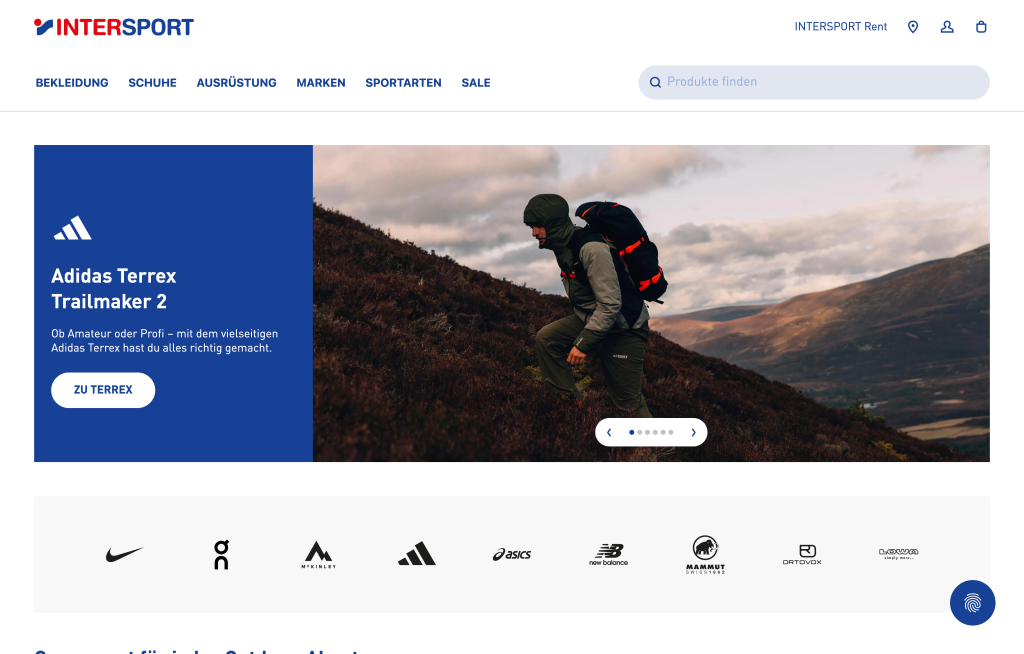
Shopify Agency
What Makes Shopify Stand Out?
Shopify is a powerful and scalable e-commerce solution ideal for both small shops and large enterprise platforms. The platform allows for the efficient management of complex online shops with a variety of customization options and integrations. Notably, it offers the ability to seamlessly integrate both online and offline sales, creating a consistent omnichannel experience for the customers.
The main USPs (Unique Selling Points) are its robust infrastructure, high availability, and fast loading times. These elements ensure optimal performance, reliability, and high conversion rates, even with high customer traffic. Shopify scales with the growth of businesses, making it a preferred choice for national and global brands seeking a powerful e-commerce platform.
Why Dream Production?
You will be supported by our team of over 20 consultants, Shopify developers, and UX specialists. As an agency, we bring more than 12 years of experience in implementing complex e-commerce platforms, SEO expertise, and integrating marketing platforms and ERP systems.
How We Work
During the project phase, you will be in regular contact with a consultant who will guide you through the project. The team is complemented by a production manager and development teams—comprising frontend, backend, and testing engineers.
Our processes have been established through hundreds of projects.
- In the initial phase, the concept and design are developed together.
- These elements are then developed in parallel.
- Once the beta version of the shop is ready, the Shopify environment is configured, and the content is added.
- The shop then goes through a testing process before finally going live.
Frequently Asked Questions about Shopify
What Makes a Good Shopify Agency?
Professional Software Development: Through a comprehensive development process—from capturing specifications via Jira, documentation via Confluence, version control (GitLab), to a dedicated QA/testing team—we ensure that all projects are handled in a structured, secure, and efficient manner. These modern development methods enable transparent and high-quality software development.
Experience in Integrating ERP and CRM Systems: We have extensive experience in integrating ERP and CRM systems using middleware. This integration allows for seamless data communication and optimizes our clients’ business processes, even for very large data volumes.
Customer Orientation and Customized Solutions: We place great value on the individual needs of our clients and offer tailored solutions. Through close collaboration and regular communication, we ensure that our solutions meet our clients’ exact requirements.
Sustainable Support and Further Development: Our support does not end with project completion. We offer long-term support and development opportunities to ensure that our clients’ Shopify platforms remain up-to-date and functional.
With these qualities, we are able to deliver not only technically excellent but also customized and future-proof Shopify solutions that sustainably support our clients’ business success.
Are There Other E-Commerce Platforms Besides Shopify That Are Recommended?
Shopware 6 Shopware 6 is a flexible and powerful platform, distinguished from Shopify by the option for “on-premise” operation. This is a significant asset for projects that emphasize data privacy and want full control over their own data. Our experiences with Shopware 6 show that it offers an excellent API-first architecture, enabling seamless integration with existing systems. Shopware 6 stands out with:
- Modular Architecture: Allows for high adaptability and extensibility.
- Headless Commerce: Ideal for integration with various frontend technologies.
- Strong Community and Support: An active community and extensive resources make it easier to find support and solutions.
WordPress/WooCommerce WooCommerce is the e-commerce solution for WordPress and is particularly suitable for businesses that already have a WordPress website. The benefits of WooCommerce include:
- Ease of Use: Intuitive interface and easy installation.
- High Flexibility: A wide range of themes and plugins to extend functionality.
- Strong SEO Capabilities: WordPress is known for its SEO friendliness, which also applies to WooCommerce.
Drupal Commerce Drupal Commerce is the e-commerce solution for the Drupal platform and is excellent for complex and customized requirements. It is ideal for companies needing high flexibility and customization.
Drupal Commerce offers:
- Integrated Content Management Capabilities: Seamless integration of e-commerce and content management.
- Scalability: Well-suited for growing businesses and complex business requirements.
- High Customizability: Ideal for companies with specific needs and the necessity for custom solutions.
Magento and PrestaShop While we focus less on Magento and PrestaShop, these platforms are also noteworthy.
- Magento: An extremely robust platform, particularly suitable for large companies and complex requirements. Magento offers extensive features and customization options but requires significant development resources and expertise.
- PrestaShop: An open-source platform suitable for small to medium-sized businesses. PrestaShop offers a variety of features and an active community but is not as scalable as Shopify or Shopware 6.
Conclusion
Our expertise and experience with various e-commerce platforms have shown us that there is no “one-size-fits-all” solution. The choice of the right platform depends heavily on specific requirements and long-term business strategies. While Shopify is an excellent choice for many businesses, Shopware 6, WooCommerce, and Drupal Commerce are also very powerful alternatives that can even be better suited depending on the need and integration into existing environments.
What Does Shopify Cost?
The costs for Shopify vary depending on the chosen plan and specific requirements. Shopify offers several pricing plans, starting at $39 per month. The Shopify plan with advanced functionalities costs $105 per month, and Advanced Shopify costs $399 per month, including additional features like advanced reporting and third-party calculated shipping rates. For high sales volumes, Shopify Plus offers a customizable solution for complex requirements, starting at $2,000 per month. Besides Shopify’s costs, there may also be costs for plugins.
Since Shopify is a SaaS solution and does not require hosting, there are no costs for software updates, making Shopify a very interesting alternative to custom shops.



